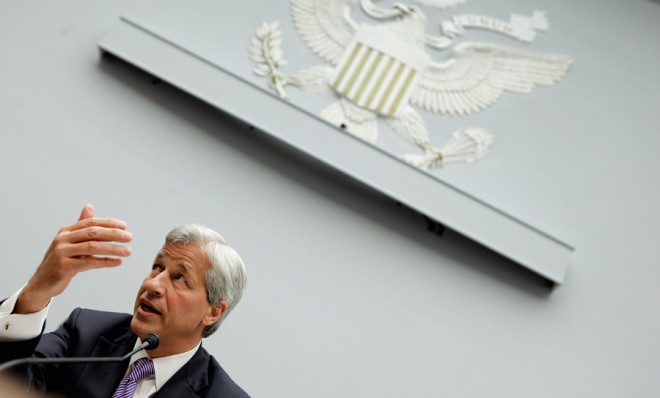JPMorgan and the ongoing saga of the London Whale
The SEC is having a summer to remember. And one of America's biggest banks may pay the price.

A free daily email with the biggest news stories of the day – and the best features from TheWeek.com
You are now subscribed
Your newsletter sign-up was successful
Much as JPMorgan Chase would love to forget about 2012's London Whale disaster, this story is just not going away.
Authorities are reportedly closing in on former JPMorgan employees Javier Martin-Artajo and Julien Grout — two of the three traders allegedly responsible for a bad derivatives bet that lost the bank an estimated $6.2 billion, then trying to hide the amount of the loss from their bosses in New York. Meanwhile, Bruno Iksil, the London Whale himself, is reportedly cooperating with the authorities in exchange for possible leniency.
And then there's the fallout for JPMorgan Chase itself. Historically, the SEC has allowed banks to pay a fine and "neither admit nor deny" wrongdoing in similar cases of employee misbehavior. In the case against former Goldman Sachs trader Fabrice Tourre earlier this summer, for example, Goldman was able to settle for $550 million — and no admission of guilt.
The Week
Escape your echo chamber. Get the facts behind the news, plus analysis from multiple perspectives.

Sign up for The Week's Free Newsletters
From our morning news briefing to a weekly Good News Newsletter, get the best of The Week delivered directly to your inbox.
From our morning news briefing to a weekly Good News Newsletter, get the best of The Week delivered directly to your inbox.
But after fielding criticism for this policy, the SEC may well require JP Morgan to acknowledge some wrongdoing as part of a settlement. "Making JPMorgan the first example of the SEC's new policy would send a clear message to Wall Street that no financial institution, even one of its largest and most profitable, is immune from being required to admit to a violation," said Peter J. Henning in The New York Times.
If JPMorgan did have to admit some guilt in order to finally put the London Whale in the SEC's rearview mirror, future class action suits against the bank by investors, which tend to follow SEC cases, could use the admission to help force the bank to pay dearly in damages.
Of course, there are plenty of analysts who think JPMorgan will be just fine, regardless. Gina Chon puts the argument this way at Quartz:
It's not that the London Whale and other mishaps won't have any impact on JPMorgan. In some ways the bank has become the new Goldman Sachs: It's now the favorite target of regulators, politicians, and the press. But Goldman Sachs isn't down and out either, and reported that its profit more than doubled in the second quarter. As long as the banks are making money, their suffering may only be temporary. [Quartz]
A free daily email with the biggest news stories of the day – and the best features from TheWeek.com
Carmel Lobello is the business editor at TheWeek.com. Previously, she was an editor at DeathandTaxesMag.com.
-
 Political cartoons for February 19
Political cartoons for February 19Cartoons Thursday’s political cartoons include a suspicious package, a piece of the cake, and more
-
 The Gallivant: style and charm steps from Camber Sands
The Gallivant: style and charm steps from Camber SandsThe Week Recommends Nestled behind the dunes, this luxury hotel is a great place to hunker down and get cosy
-
 The President’s Cake: ‘sweet tragedy’ about a little girl on a baking mission in Iraq
The President’s Cake: ‘sweet tragedy’ about a little girl on a baking mission in IraqThe Week Recommends Charming debut from Hasan Hadi is filled with ‘vivid characters’